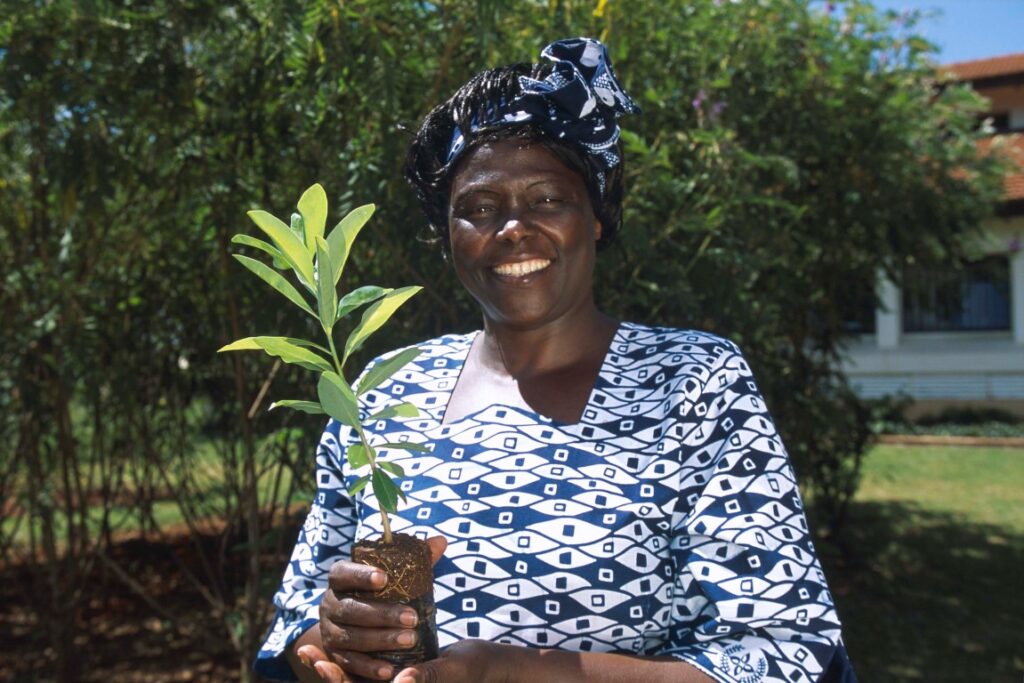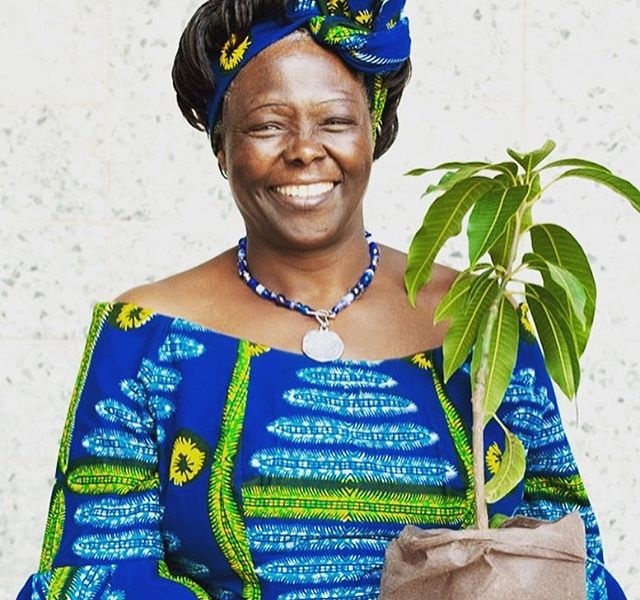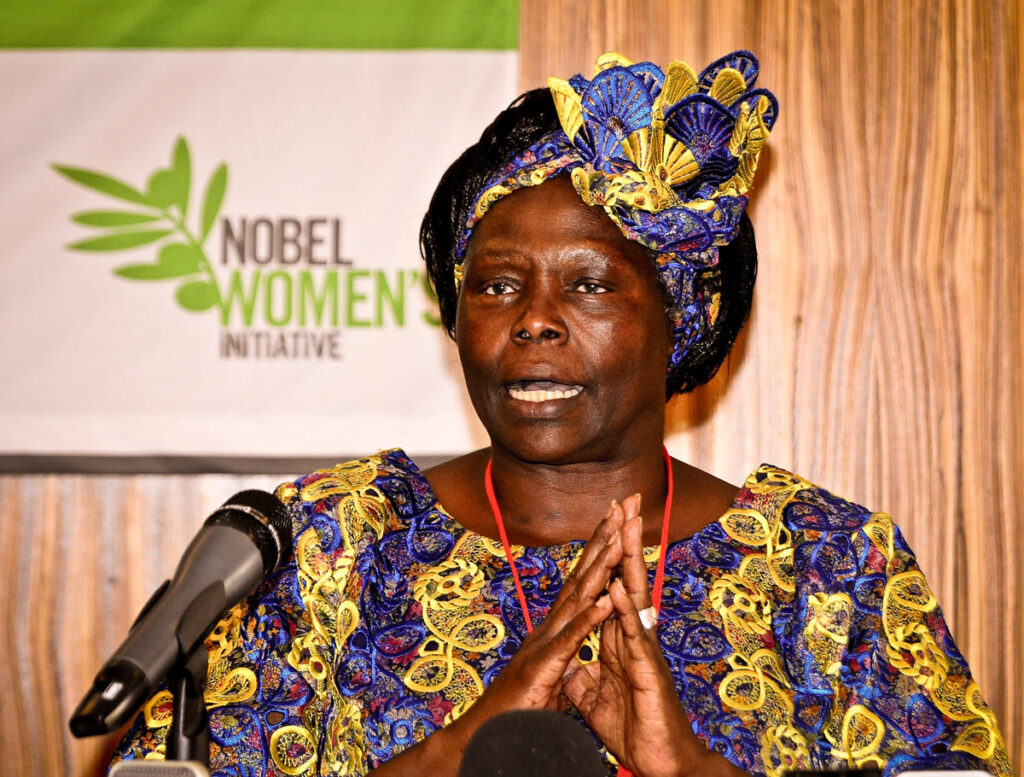The Green Belt Movement in Kenya
Wangari Maathai
Founded in 1977 by Professor Wangari Maathai, the Green Belt Movement (GBM) has planted over 51 million trees in Kenya. GBM works at the grassroots, national, and international levels to promote environmental conservation; build climate resilience, and empower communities, especially women and girls; to foster democratic space and sustainable livelihoods.

Green Belt Movement
Wangari Maathai was the founder of the Green Belt Movement and the 2004 Nobel Peace Prize Laureate. She authored four books: The Green Belt Movement; Unbowed: A Memoir; The Challenge for Africa; and Replenishing the Earth. As well as having been featured in a number of books, she and the Green Belt Movement were the subject of a documentary film, Taking Root: the Vision of Wangari Maathai (Marlboro Productions, 2008).
National Council of Women
Professor Maathai was active in the National Council of Women of Kenya (1976–1987) and was its chair (1981–1987). In 1976. While she was serving in the National Council of Women, Professor Maathai introduced the idea of community-based tree planting. She continued to develop this idea into a broad-based grassroots organization, the Green Belt Movement (GBM), whose main focus is poverty reduction and environmental conservation through tree planting.


Earth Summit
Professor Maathai was internationally acknowledged for her struggle for democracy, human rights, and environmental conservation, and served on the board of many organizations. She addressed the UN on a number of occasions and spoke on behalf of women at special sessions of the General Assembly during the five-year review of the Earth Summit. She served on the Commission for Global Governance and the Commission on the Future.
Tetu Constituency
Professor Maathai represented the Tetu constituency in Kenya’s parliament (2002–2007), and served as Assistant Minister for Environment and Natural Resources in Kenya’s ninth parliament (2003–2007). In 2005, she was appointed Goodwill Ambassador to the Congo Basin Forest Ecosystem by the eleven Heads of State in the Congo region. The following year, 2006, she founded the Nobel Women’s Initiative with her sister laureates Jody Williams, Shirin Ebadi, Rigoberta Menchú Tum, Betty Williams, and Mairead Corrigan. In 2007, Professor Maathai was invited to be co-chair of the {Congo Basin Fund}, an initiative by the British and the Norwegian governments to help protect the Congo forests.
In recognition of her deep commitment to the environment, the United Nations (UN) Secretary-General named Professor Maathai a {UN Messenger of Peace}in December 2009, with a focus on the environment and climate change. In 2010 she was appointed to the Millennium Development Goals Advocacy Group: a panel of political leaders, business people and activists established with the aim to galvanise worldwide support for the achievement of the Millennium Development Goals (MDGs). Also in 2010, Professor Maathai became a trustee of the {Karura Forest Environmental Education Trust}, established to safeguard the public land for whose protection she had fought for almost twenty years. That same year, in partnership with the University of Nairobi, she founded the Wangari Maathai Institute for Peace and Environmental Studies (WMI). The WMI will bring together academic research—e.g. in land use, forestry, agriculture, resource-based conflicts, and peace studies—with the Green Belt Movement approach and members of the organisation.

